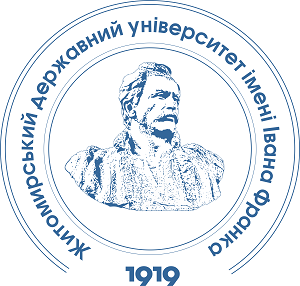RESOURCES AND RISKS FOR JOURNALISTS' MENTAL HEALTH IN WAR TIME
DOI:
https://doi.org/10.32782/psy-2024-4-3Keywords:
journalists' mental health, depression, anxiety, professional burnout, resilient coping, post-traumatic growth.Abstract
Abstract. The article is devoted to the problem of Ukrainian journalists' mental health during the war, especially the risks for psycho-emotional state and resources for resilience and growth. The results of psychological research of journalists mental state of world and Ukrainian scientists are analyzed in the work. The actual empirical research is based on the idea that the journalists' mental health during the war is closely related to their life experience of being in war conditions and functional professional responsibilities. It was found that journalists in war conditions have an average level of perceived stress with high scores on the Perceived Helplessness subscale and average scores on the Perceived Self-Efficacy subscale. Most journalists have signs of mild depression, anxiety and sleep disorders, a low level of professional burnout and resilient coping, an average level of post-traumatic growth. To overcome stress, they use cognitive reappraisal of emotions (to overcome negative emotions (annoyance, anger, depression) and improve mood (feel joy or satisfaction), change their attitude to the situation, switch attention, etc.), as well as expressive suppression of emotions (keep their emotions to themselves, try not to show them to the outside, restrain their external manifestations). Mental health complications are more often observed in fixers, journalists who are constantly in or systematically visit the war zone. They have a high level of perceived helplessness due to multifunctionality and responsibility, they often feel that they cannot cope with the entire volume of work or personal problems, and therefore suppress their own emotions, try to control their external manifestations. Obviously, this can be explained by the level and frequency of traumatic exposure. At the same time, these journalists demonstrate higher rates of resilient coping and post-traumatic growth due to the accumulated experience of overcoming stressful events, a sense of control, self-worth, and social support. They cope well with negative emotions, use creative ways of solving difficult situations, look for and use new opportunities, strengthen relationships with others.
References
Cohen S., Williamson G. Perceived Stress in a Probability Sample of the United States . The Social Psychology of Health : Claremont Symposium on Applied Social Psychology / Ed. S. Spacapan, S. Oskamp. Newbury Park, CA : Sage, 1988. P. 31–67.
Dworznik-Hoak G. Weathering the Storm: Occupational Stress in Journalists Who Covered Hurricane Harvey. Journalism Studies. 2019. June.
Feinstein A. I’ve studied journalists under pressure for 20 years. Here's what I've learned so far. URL: https://reutersinstitute.politics.ox.ac.uk/news/ive-studied-journalists-under-pressure-20-years-heres-what-ive-learnedso-far (дата звернення: 02.11.2024).
Feinstein A., Storm H. The Emotional Toll On Journalists Covering The Refugee Crisis. RISJ New Publishing. DOI: 10.60625/risj-npbs-0x68.
Ford J., Thomas F., Byng R., McCabe R. Use of the Patient Health Questionnaire (PHQ-9) in Practice: Interactions between patients and physicians. Qualitative Health Research. 2020. Т. 30, № 13. С. 2146–2159. DOI: 10.1177/1049732320924625
Ghaffar O., Feinstein A. Reporting Under Fire: Understanding Psychopathology of War Journalists. URL:
https://www.psychiatrictimes.com/view/reporting-under-fire-understanding-psychopathology-war-journalists (дата звернення: 02.09.2024).
Gross J. J., John O. P. Individual differences in two emotion regulation processes: Implications for affect, relationships, and well-being. Journal of Personality and Social Psychology. 2003. Vol. 85(2). Р. 348–362. DOI: https://doi.org/10.1037/0022-3514.85.2.348.
Malach-Pines A. The Burnout Measure, Short Version. International Journal of Stress Management. 2005. Vol. 12(1). Р. 78–88. DOI: 10.1037/1072-5245.12.1.78.
Evaluation of Severity Levels of the Athens Insomnia Scale Based on the Criterion of Insomnia Severity Index / Okajima I., Miyamoto T., Ubara A., Omichi C., Matsuda A., Sumi Y., Matsuo M., Ito K., Kadotani H. International Journal of Environmental Research and Public Health. 2020. Vol. 17(23). Р. 8789. DOI: 10.3390/ijerph17238789.
Seely N. Journalists and mental health: The psychological toll of covering everyday trauma. Newspaper Research Journal. 2019. Vol. 40(2). Р. 239–259. DOI: https://doi.org/10.1177/0739532919835612.
Sergatskova K. Why mental health support for journalists and newsrooms in Ukraine is critical. URL: https://ijnet.org/en/story/why-mental-health-support-journalists-and-newsrooms-ukraine-critical (дата звернення: 02.11.2024).
Sinclair V. G., Wallston K. A. The development and psychometric evaluation of the Brief Resilient Coping Scale. Assessment. 2004. Vol. 11(1). Р. 94–101. DOI: https://doi.org/10.1177/1073191103258144.
Smith R., Nelson S., Newman N. Covering traumatic news stories: Factors associated with PTSD among journalists. Stress and Health. 2017. DOI: 10.1002/smi.2775.
Spitzer R. L., Kroenke K., Williams J. B., Löwe B. A brief measure for assessing generalized anxiety disorder: the GAD-7. Archives of Internal Medicine. 2006. Vol. 166(10). Р. 1092–1097. DOI: https://doi.org/10.1001/archinte.166.10.1092.
Tedeschi R. G., Calhoun L. G. The Posttraumatic Growth Inventory: measuring the positive legacy of trauma. Journal of Traumatic Stress. 1996. Vol. 9(3). Р. 455–471. DOI: 10.1007/BF02103658.
Вельдбрехт О. О., Тавровецька Н. І. Шкала сприйнятого стресу (PSS-10): адаптація та апробація в умовах війни. Проблеми сучасної психології. 2022. № 2 (25). С. 16–27. DOI: https://doi.org/10.26661/2310-4368/2022-2-2.
Медійники, які загинули внаслідок широкомасштабного вторгнення Росії в Україну / Інститут масової інформації. URL: https://imi.org.ua/infographics/spysok-zagyblyh-zhurnalistiv-i45958 (дата звернення: 02.11.2024).
Постійна втома та проблеми зі сном – основні психологічні виклики для журналістів у 2023 році / Інститут масової інформації. URL: https://imi.org.ua/monitorings/postijna-vtoma-ta-problemy-zi-snom-osnovni-psyhologichnivyklyky-dlya-zhurnalistiv-u-2023-rotsi-i58239 (дата звернення: 02.11.2024).
Савиченко О. М., Рубан О. В., Шуневич Є. М. Психічне здоров’я журналістів в умовах війни. Габітус. 2024. Вип. 64. С. 171–176. DOI: https://doi.org/10.32782/2663-5208.2024.64.30.






